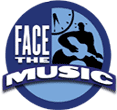If You Enjoy Reading What I Write

If you enjoy my writing, I invite you to click on any one of the six links below. These are the six most popular posts of mine on MEDIUM -- an online platform where I am publishing daily. If you like what you read, feel free to subscribe to my posts and request to receive an email alert whenever anything new of mine is published there. Enjoy!
What I Learned, in a Closet, from my 3-Year Old Son
What It Really Means to Be a Friend
On Realizing the Nature of True Being
Here's the Problem with Reading Rumi
100 Sure-Fire Reasons to Go Within
Posted by Mitch Ditkoff at 08:38 AM | Comments (0)
July 31, 2020Why Tell Stories?

In the last 60 seconds, here's what happened:
168 million emails were sent, 700,000 Google searches were launched, and 60 hours of YouTube videos were uploaded, not to mention all the spam, banner ads, phone calls, Facebook posts, tweets, texts, and telemarketing calls that found their way to your doorstep.
A whopping 90% of all data in the world has been generated in the past two years alone. Think about this: Before the dawn of civilization, approximately 5 exabytes of information had been created. Now, that much information is created every two days!
The common term for this head-spinning phenomenon is "information overload" -- the inability to absorb and process all of the information we are exposed to.
And while the gory statistics change every nanosecond, the results are the same -- leading to what is increasingly being referred to as "Information Fatigue Syndrome" (IFS) -- a condition whose symptoms include poor concentration, depression, burnout, hostility, compulsive checking of social media, and falling into trance-like states.

This describes the mindset of many, if not all, of the people you are attempting to influence on a day-to-day basis, be they customers, clients, friends, voters, volunteers, children, or your mother-in-law.
If you are committed to delivering a meaningful, memorable message to another human being, the burning question you need to be asking is this: "How can I cut through all of the background noise so my message can heard and remembered?"
Fear not. It's possible. According to neuroscientists, psychologists, theologians, sociologists, advertisers, linguists, and marketers, the answer is a simple one: storytelling.
Storytelling is the most effective, time-tested way to transmit meaning from one human being to another. It's been going on since the beginning of time when our first ancestors stood around the tribal fire. It's how civilizations pass on their wisdom to the next generation. It's how religions pass on the sacred teachings of their faith. And it's how parents, via the telling of fairy tales, transmit the values they want to impart to their children.
Here are just a few of the reasons why storytelling is so powerful:
It quickly establishes trust and connection between the speaker and listener.
It increases receptivity, captures attention, engages emotions, and allows the receiver to participate, cognitively, in the narrative.

It communicates values, not just skills, decreases teaching time, builds community, ignites five more regions of the brain than mere fact giving, helps people make sense of their world, shapes perceptions via the subconscious mind, reframes frustration, paradox, and suffering, changes behavior, and provides a dependable way for people to remember, retrieve, and retell a meaningful message.
Think about a message you want to communicate to someone today. How might you do that via story, instead of overloading them with more information, statistics, and pep talks?
Storytelling at Work
Storytelling for the Revolution
My storytelling blog
Posted by Mitch Ditkoff at 06:10 PM | Comments (0)
June 24, 2019How to Tell a Good Story
Let's start with the basics: You already know how to tell a good story. You do. You've been telling stories your entire life. Today, you probably told at least a few. And later, tonight, you will probably tell some more -- whether they are merely accounts of your day, a memorable encounter you had at work, or a reminiscence from days gone by.
Story is the ocean we are swimming in. And because it is, we don't necessarily feel wet when we're in it, but we are.
Fish aren't taught to swim. And you aren't taught to tell stories. As a child, you didn't need to be taught. All you needed was to hear them and them tell them to others -- which you did -- everything from The Three Little Pigs to Jack and the Beanstalk to the excuses you laid on your teachers for not handing in your homework on time.
Of course, if you had to teach someone how to tell a story in the next ten minutes, you would probably resist because you don't necessarily know how you do it. But just because you don't, doesn't mean you lack the knowledge or the skill. You don't. It's in there. It is.
Storytelling is what psychologists refer to as an "unconscious competence" -- a skill, like walking, eating, or complaining that has become second nature to us. It's in our bones and has been since we were very young. And while you may not be as skillful a storyteller as Garrison Keillor, you don't need to be a Garrison Keillor in order to be a good storyteller. In fact, you don't want to be Garrison Keillor. You want to be yourself. Because being yourself is one of the secrets to being a good storyteller.
Is this just a story I'm telling you -- a way to pump you up and get you past your resistances? No, it's not. Having been a professional communicator for the past 27 years and having worked with thousands of people from just about every industry on planet Earth, I've seen, first hand, the extraordinary, untapped and unexpressed ability people have to go beyond their assumptions of who they are, what they do, and how they do it.
Where to begin? With one simple commitment: To stop telling yourself the story that you don't know how to tell a good story.
Willing? If so, the rest of this essay is for you. Unwilling? No problem. Either skip the next few paragraphs or take a nap. Ultimately, there is only one thing you need to know if you want to tell a good story: Storytelling is part art and part science. And of the two, it's more about the art than it is about the science.
Communicating your humanity is the art. The more human you are willing to be (i.e. not perfect, not an expert, not a superhero), the more likely it is that people will connect with your story.
The key to communicating your humanity? Your passion for telling your story, your respect for your audience, your authenticity, your understanding that people will get what they need without you teaching or preaching, and your ability to engage the attention of the people you are telling your story to. All of the preceding requires the right application of eight subtle factors: voice tonality, body language, facial gestures, hand movement, pacing, adapting to the non-verbal cues from your audience, how evocative you are, and the choice of what details to include, embellish, or ignore.
Can these factors be learned? Of course they can -- much in the same way that aspiring actors go to acting class. But the real key to successful storytelling is less about study than it is about practice. The more stories you tell, the better you'll get. It's as simple as that. Real-time, you'll figure out what works and what doesn't work and then make the necessary adjustments in order to improve.
The science of telling a good story is much less complicated that you think. Fundamentally, it's about structure and the inter-relationships of the elements that comprise the structure. Just like a house needs a foundation, framing, walls, and a roof if it wants to fulfill its purpose, a story needs structure, too. Once you understand the elements of story structure, you're on your way.
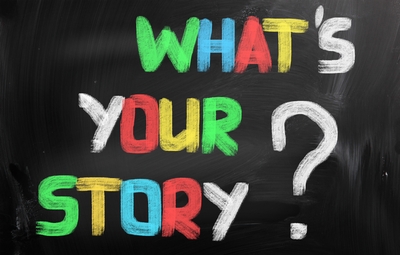
What are those elements? There are five, just like the fingers on the hand you use to make a point.
1. Setting (where your story takes place)
2. Character (the hero/heroine/protagonist who has adventures)
3. Plot (the events that unfold, the arc of what happens)
4. Conflict (the obstacles the characters encounter)
5. Theme (the resolution of the conflict, what's been learned along the way)
Storytelling for the Revolution
Posted by Mitch Ditkoff at 04:34 PM | Comments (0)
May 23, 2019Kobe Bryant on Storytelling

Why create a culture of storytelling?
How to tell a good story
Excerpt from Storytelling at Work
The slam dunk of storytelling books
A story not by Kobe Bryant and not in my book
FAQ about Storytelling at Work
Posted by Mitch Ditkoff at 10:28 PM | Comments (0)
December 03, 2018SOME THINGS TAKE A WHILE

At last count, there were 7.6 billion people on planet Earth. The odds of any two people meeting, I believe, is something like 7.6 billion to one. And the odds of any two of those 7.6 billion people deciding to collaborate on a complicated, culture-changing project -- especially if one of them is an Australian Muslim born in Pakistan and the other is an American Jew born in New York -- is in the slim-to none-zone. But that's exactly what happened to me last year, a collaboration that took seven years to manifest, a classic span of years noted 700 times in the Bible and God knows how many times in the Quran.
Like any story, the one I am about to tell has a very juicy back story which, technically speaking, is part of the story, depending, of course, on how far back I decide to rewind the karmic tape -- the seemingly invisible, below-the-surface prelude to what I would only later discover to be one of the most fascinating collaborations of my life.
Ready? Here goes:
Seven years ago, Fazeel Arain, the Co-Founder and Principal of Al Siraat College, a K-12 Australian School in the Islamic tradition, located on the outskirts of Melbourne, found his way to my Heart of Innovation blog. Unbeknownst to me, he had become a big fan of my writing, point of view, and sense of humor. After two years of tuning in to my various articles, stories, videos, tools, techniques, and quotes, Fazeel decided to contact me, curious to know if my organization might be available to be of service to his.

While I was tickled to be contacted by the very forthright Fazeel (a name, in Urdu, that translates as "knowledgeable"), I was also skeptical that anything much would come of it -- not because I didn't want anything to come of it, but because, historically speaking, educational institutions had proven to be highly unlikely clients of mine. Their budgets were low. Their risk aversion was high. And when you considered the fact that Fazeel's K-12 school was 10,000 miles away and was Islamic, to boot, the odds of anything real coming of this seemed microscopically small. So when, after our first conversation, Fazeel asked me to submit a proposal, my first reaction was to raise my metaphorical eyebrows and think "no way."
Having trained myself, however, for the past 28 years, to go beyond the knee-jerk, nay saying negativity that often accompanies the appearance of a seemingly long-shot possibility, I made my way over to my favorite cafe, ordered a cappuccino, and started to noodle. Four hours later, proposal done, I emailed it, fingers crossed, to the aforementioned Mr. Fazeel -- a man I had come to learn was a former Oracle IT consultant, father of five, and the husband of a brilliant woman named Rahat, a former civil engineer.
The plot thickens.

Fazeel loved absolutely everything about my proposal except the fee, which, he explained, was "too rich for his blood" or whatever the equivalent Australian/Islamic phrase was for "Ouch, our budget just can't handle it." Unwilling to discount my already discounted fees any more, it was obvious we had come to an impasse. And so Fazeel went his way and I went mine.
Two years passed.
Then, very much out of the blue, in the midst of attempting to guide Al Siraat through yet another "change process," Fazeel contacted me again. The more I listened to him wax on about the school's many challenges, the dizzier I got. Although I was quite familiar with the phenomenon of "change management" (a second cousin to getting your teenage daughter to clean up her room), it was not, shall we say, my cup of tea. Three decades of consulting with a wide variety of forward thinking organizations had taught me that "change management" was often a euphemism for "How would you like to spend the next few years banging your head against a wall?" And besides, I had several other clients to serve, a marriage to nurture, two kids, and a huge need to write my next book in whatever spare time I didn't have.
And so, I asked the very dedicated Fazeel Arain if he would be open to two of my colleagues taking on the project. He was. And so began an inspired, four-month, dialogue between Lynnea, Michael, and Fazeel.
Other than me recognizing my own weird tendency to consider projects that had very little chance of materializing, nothing came of it. Zero. Nada. Zilch.
Another year passed. (We are now six years into the process.)

And then, one morning, while showering, I was hit upside the head with what I considered to be a brilliant idea. You see, Fazeel's school wasn't the only organization going through changes. Mine was, too. With the American economy in the toilet and my company's sales distressed, I decided to launch an online raffle -- a clever way, I thought, to drum up interest in our online, Conducting Genius training.
The offer was a simple one. Raffle tickets would be absolutely free. All a company had to do to was send us an email with "Conducting Genius" written in the subject line. That was it. And then, on index cards, we would write the names of the companies who had entered and randomly select three winners. The prize? A 75% discount on our training. Street value? $6,500. "Such a deal!" I could hear my grandfather saying from the Great Beyond.
One person entered. Guess who? That's right. The very bearded, tenacious, Allah-is-in-Control, Mr. Fazeel Arain.
Thrilled to learn he had won, Fazeel, understandably, assumed that I would be the one to deliver the training. I wasn't. Maxed with other responsibilities at the time, I handed the project over to one of my long-time colleagues, the very accomplished brainstorm facilitator, Valmore Joseph Vadeboncoeur.

The first three sessions went quite well. After Session #3, Fazeel asked if I would lead the fourth.
My first response? Ummm... I'm not sure how to translate it into Arabic, but in Yiddish, it was "Oy vey," an abbreviation of the slightly longer phase, Oy vey ist mir, a well-known expression of dismay or exasperation whose English equivalent was "woe is me."
My second response? "Sure, why not?"
Session #4 turned out to be an AHA moment for me -- the difference, as Mark Twain once put it, between lightning and a lightning bug. Until then, my relationship with Fazeel and Al Siraat had been mostly theoretical -- the concept of working together, but not the reality itself. In just 60 minutes all of that changed, me having the real-time experience of teaching five Islamic school Directors how to begin unlocking the creative genius of their workforce. These were not "Muslims halfway around the world." These were living, breathing, soulful human beings, each with a name, a face, a personality, and a sincere desire to expand their horizons -- Andrew, Shahzad, Esra, Rahat, and Fazeel
"Hey Mitch, how would you like to visit the school?" Fazeel asked me two weeks later.
A single image came to mind. Rocky. Fazeel, like Sylvester Stallone's iconic, street smart dreamer, was totally relentless -- a man on fire with purpose and possibility. He knew what he wanted and was going for it, against all odds. No matter how many times I ducked, dodged, or deflected, his invitations kept coming.
"Fazeel," I replied, "thank you so much for your kind invitation, but Melbourne... you see... is... uh.. a 22-hour flight away for me. We're talking two days of travel, three days on-site, and probably another three days to recuperate. I just don't have the time. Maybe next year."
Three months passed.
And then, as fate would have it (or was it Allah or Jehovah?), I was invited to attend a five-day conference, with my teacher, outside of Brisbane -- just a two hour flight from Melbourne. This news made Fazeel happy. He paid for my Brisbane to Melbourne flight, picked me up at the airport, took me to lunch, introduced me to his wife and children, made me chai tea (often), fed me chocolate, toured me around the school, asked me to teach a few classes, invited me to speak at the prayer hall, and proceeded to enter into an off-the-grid, non-stop, three-day dialogue about what our future collaboration might look like. He even offered me a full time position.
To quote Dorothy from the Wizard of Oz, "Toto, we're not in Kansas anymore."
Bottom line, my three-day introduction to Al Siraat was a total delight -- mind opening, heart opening, door opening, intriguing, inspiring, fun, soulful, endearing, encouraging, heartwarming, provocative, unforgettable, and very educational. Until then, I had never had a single conversation with a Muslim. Though I had many friends from a wide variety of religions and spiritual paths, I didn't know a single soul from the Islamic world. My only exposure to Islam had been the late night news.
For want of a better phrase, let's just say a Red Sea parted for me. I got to experience, first hand, during my three-day visit, what Fazeel, Rahat, their Directors, Teachers, and Staff were trying to do, against all odds -- to create a model for what Islamic education could be in the future -- a heart-centered, values-driven, learning community that built character and prepared the next generation of movers and shakers to make a real difference in the world.

Beyond their hopes and aspirations, it was clear to me that Al Siraat had more than its share of problems, challenges, and disappointments. But so what? Life is not always easy. Moses wandered in the desert for 40 years. Noah had to build an ark. Muhammed lost all six of his children. And Jesus was crucified. Even baby chicks have to peck their way out of the shell.
What I found so compelling about Fazeel and many of his colleagues -- the mojo that moved me to spend three months of my life, last year, working at the school -- was the recognition of just how powerful an experience it is to be called. Clearly, Fazeel was being called. And so was Rahat, his wife. And Mufti Aasim, the school's Spiritual Director. And Esra, Shahzad, Sheikh Wasseem, Gulhan, Leah, Najma, Vis, Evla, Noori, Javed, Bilal, Naveed, Maqsood, Zev and so many others on staff who had come to a point in their life when it was time to take a stand.
The name of the force that calls a human being? It has many. And it was calling me, too, a Jewish man from Woodstock (with an Indian Guru) -- someone who didn't speak a word of Arabic and has never read the Quran. But peel away the superficial differences that seemed to be separating us and we were all on the exact same page -- the page of life -- no matter what language or tradition the words on that page originated from.
To be continued...




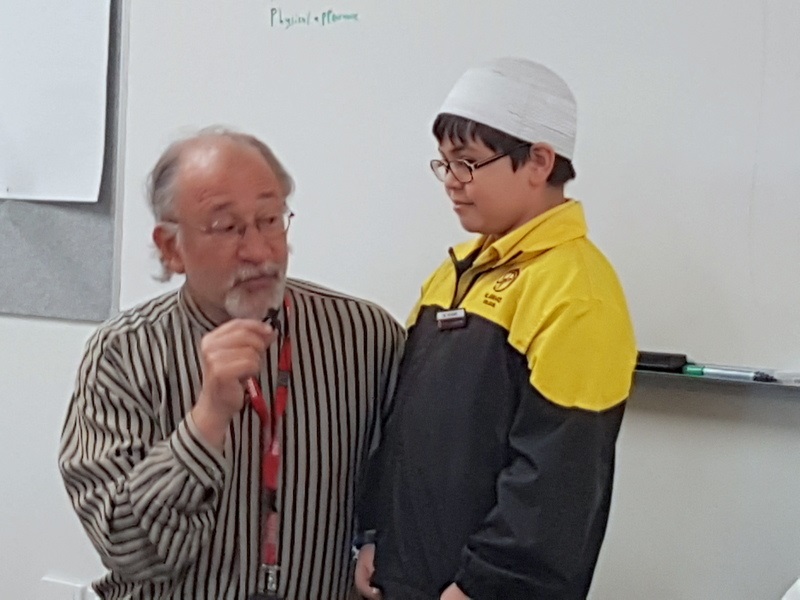

Helping children understand the moral of a story
Fazeel's testimonial
MitchDitkoff.com
Idea Champions
My most recent book of stories
How we can collaborate, virtually
Posted by Mitch Ditkoff at 10:28 AM | Comments (0)
March 24, 2018Storytelling & the Creative Process
This is bleeping brilliant. Not only WHAT its says, but HOW it's presented. Two minutes on what it takes to really do creative work. Inspiring. Truthful. And in your face like a fresh arctic wind off a lake you've been waiting too long to sail on...
Ira Glass on Storytelling from David Shiyang Liu on Vimeo.
It took me four years to write this book
Idea Champions
Posted by Mitch Ditkoff at 03:06 PM | Comments (1)
March 06, 2018Why Make the Effort to Create a Culture of Storytelling?

Unless you've been living in solitary confinement for the past few years, chances are good that you are a member of some kind of organization, or community -- a gathering of people who have come together in service to a common goal. Whether it's a Fortune 500 company, school, non-profit, or softball team, we are all, whether we know it or not, involved in the process of creating organizational culture -- "a collective way of thinking, believing, behaving, and working."
How conducive the cultures we create are to the success of our missions is anyone's guess, but what is not a guess is the fact that high-performing organizations exhibit the same kind of mission-enabling qualities: trust, shared vision, collaboration, clear communication, diversity of thought, commitment to learning, freedom of expression, and a sense of belonging.
While there are many ways to enhance these qualities, the most effective and least expensive way is through storytelling -- a culture-building phenomenon that's been going on since language first began. Simply put, in order for a group of people to accomplish extraordinary goals, they need to know each other at a level far beyond title, role, or resume.

When people tell their stories to each other and are heard, magic happens. People bond. Barriers dissolve. Connections are made. Trust increases. Knowledge is transmitted. Wisdom is shared. A common language is birthed. And a deep sense of interdependence is felt. That's why, in days of old, our ancestors stood around the fire and shared their stories with each other. Survival depended on it and so did the emotional well-being of the tribe.
Times have changed since then, as have our methods of communication.
Where once story reigned supreme, now it's technology and all her attention-deficit offspring: texting, Twitter, Instagram, email, Facebook, and drive-by pep talks.
What we've gained in efficiency, we've lost in effectiveness. The spirit of the law has been replaced by the letter. People may be transmitting more, but they are receiving less. We share data, information, and opinions, but not much meaning. And it is meaning that people hunger for. It doesn't take a rocket scientist to figure out why employee engagement is down in so many organizations these days. It's because people feel isolated, disconnected, unseen, and unheard.
Idea Champions
Excerpted from Storytelling at Work
Our storytelling workshop
MitchDitkoff.com
Posted by Mitch Ditkoff at 09:19 AM | Comments (0)
December 08, 2017What I Learned from 10 Chemical Salesmen and Some Masking Tape

As a person infinitely more interested in alchemy than chemistry, not once during my formative years as a young entrepreneur did I ever, once, aspire to sit in a room with 10 middle-aged, overweight chemical salesmen from New Jersey -- modern day Willy Lomans driving 100,000 miles each year to call on purchasing agents from Maine to Virginia in a heroic attempt to sell more of their company's product and, eventually, win the "President's Award" that would be bestowed on them, at their year end pow wow, in the Oakwood Room or the Bellmore Room or some other vapidly named meeting space in a modestly priced hotel still trying to figure out how to reduce their high rate of employee turnover.
But that's exactly where I found myself.
Somehow, their boss, my client, a Regional Manager responsible for convincing upper management that this year was going to be a banner year -- had gotten my name and asked me if I could help his people get out of the box and increase sales by 20%.

While my more politically correct friends chided me for choosing to work with a chemical company, I had absolutely no problem with my choice -- having long ago made peace with the fact that every business, no matter what industry or how skillful its PR department was in raising its perceived value, had something wrong with it.
Unless I wanted to be a potter in Vermont, there was always going to be something unseemly about the marketplace. And besides, I had a wife and two young kids to support.
The morning session with the ten chemical salesmen was all they hoped it would be -- an upbeat opportunity to bond and brainstorm. The ideas were flowing and so was the coffee. Everyone was happy.
During the lunch break, I stayed back to set things up for the afternoon session -- one I was planning to begin with a hands on activity that required me placing a 20 foot length of masking tape on the floor, parallel to the entrance, which I proceeded to do without a second thought.
At 1:00, the time I had asked everyone to be in their seats, the room was totally empty. Just me and the briefcases they had left behind. Maybe I had the time wrong.
I looked at my watch. I looked at the clock on the wall. Both of them had the exact same time: 1:00, the time the afternoon session was supposed to begin. Then I looked at the door. It was open, but all ten of the chemical salesmen were standing outside the door, in the hallway, unmoving, as if they were waiting for a bus.
"C'mon in guys", I called. "It's time for the afternoon session to begin."
"We can't", they replied, standing their ground.
I walked across the room and asked them why.In unison, they pointed to the 20-foot length of tape on floor.
"Hey it's OK, guys. It's just a piece of tape -- just part of an activity we'll be doing in a little while. It's no big deal."
But they just stood there, looking at me. Frozen in time. As if the tape was electrified. As if they were about to do something very wrong. As if they were going to make a BIG MISTAKE they would, somehow, later regret.
COMMENTARY:
It is now 20 years later and the image of those 10 chemical salesmen, unmoving, convinced they were not allowed to step over the line, is still very much with me, burned into whatever part of my brain is reserved for moments like this.
I owe these gentleman an eternal debt of gratitude because they helped me understand a part of the human psyche that I had never seen as dramatically before -- how the decisions we make about what we can do and what we can't do are often utterly arbitrary, ruled more by the meaning we ascribe to phenomena than by any intrinsic, irreversible Laws of Nature.
The chemical salesman saw the masking tape on the floor and interpreted it as meaning STOP. Their conclusion was a function of their collective generalization of past experiences they had about lines -- unbroken white lines in the middle of a highway, property lines separating neighbor from neighbor, and countless "B" movies where the tough guy draws a line in the sand with a stick and dares anyone to cross it or "else."
Yes, of course, some lines serve a purpose. I'm glad that the guy driving 75 mph in the oncoming lane doesn't cross the line. That's a good thing.
But the moment with the chemical salesmen was not the interstate. It was just a piece of masking tape on the floor in a hotel meeting room. No game was being played. No rules had been set. There was absolutely nothing to lose by stepping over it.
Wherever I go in corporate America, I see this same phenomenon playing out in a thousand different ways -- less visible, perhaps, than my moment with the chemical salesmen, but just as limiting.

What are we so afraid of? What line are we afraid of stepping over? What imagined consequences paralyze us at the threshold and prevent us from moving forward?
One of the reasons why innovation is inert in so many organizations is because masses of intelligent, innately creative people are interpreting tape on the floor as lines that cannot be crossed. We are fabricating boundaries where none exist. We are drawing lines in space -- lines that separate, isolate, and marginalize. Lines between us and our customers. Lines between the past and the present. Lines between what's possible and what's not.
The bottom line?
All obstacles are no more than 20 foot lengths of masking tape on the floor. Whether you put them there or someone else puts them there, they have no power other than the power you attribute to them. If the lines are no longer useful, remove them. If you try to remove them and you are besieged by a raging hoard of anxious people trying to convince you to stop, it may be time to move on. Find another company with less lines. Or start your own.
"Don't be afraid to take a big step. You can't cross a chasm in two small jumps." -- David Lloyd George
"Whatever you can do, or dream you can, begin it. Boldness has genius, power and magic in it." -- Goethe
"Security is mostly a superstition. Life is either a daring adventure or nothing." -- Helen Keller
"It's not because things are difficult that we dare not venture. It's because we dare not venture that they are difficult." -- Seneca
"Only those who will risk going too far can possibly find out how far it is possible to go." -- T.S. Eliot
This story is excerpted from my forthcoming book, WISDOM AT WORK: How Moments of Truth on the Job Reveal the Real Business of Life. If you are a publisher or know of a publisher who would resonate with this kind of material, email info@ideachampions.com.
Excerpted from this book
Another one from the book
Idea Champions
Step over the line
Step over the line with some aspiring innovators
Help others step over the line
Posted by Mitch Ditkoff at 10:08 PM | Comments (0)
November 04, 2017The Growing Relationship Between Storytelling and Lean Six Sigma

These two Lean Six Sigma practitioners walk into a bar. Wait... no... I mean three Lean Six Sigma practitioners walk into a bar. The first is wearing pink tights. The second is mumbling something about a fishbone diagram. The third is just back from a 10-day vacation in Croatia. Now that I have your attention, click here for a rousing 60-minute webinar on the relationship between storytelling, innovation, and Lean Six Sigma. The interviewer? The fabulous Elisabeth Swan, Managing Partner of GoLeanSixSigma. The interviewee? Mitch Ditkoff, President of Idea Champions and author of Storytelling at Work. Enjoy!
Posted by Mitch Ditkoff at 04:16 AM | Comments (0)
August 29, 2017How I Won a Contract from AT&T By Teaching One Man to Juggle

A picture may be worth a thousand words, but a good story is worth a million. Here's a five-minute story about how the company I co-founded, Idea Champions, won a large contract from AT&T by teaching the Director of Training and Development how to juggle in five minutes.
Read the full story in this book
A priest, a penguin, and a newspaper reporter walk into a bar
Me speaking about storytelling in business

Posted by Mitch Ditkoff at 05:56 PM | Comments (0)
April 17, 2017Frequently Asked Questions About Storytelling at Work

1. WHO IS THIS BOOK FOR?
Anyone interested in the power of personal storytelling to awaken, inspire, and communicate a meaningful, memorable message -- especially around "moments of truth" on the job. It's also for forward-thinking business leaders who want to elevate the conversation in the workplace and radically increase the odds of peer-to-peer learning happening on a daily basis.
2. WHY IS THIS BOOK TIMELY?
Because the story being told, these days, is predominantly bad news. Terrorism, war, greed, corruption, political infighting, and corporate collapse rule the airways. But something else is also happening and that "something else" too often remains unspoken -- individual stories of insight, breakthrough, kindness, courage, innovation, learning, and wisdom. The more these stories are told, the faster the world's story will change. As the poet Muriel Rukeyser once said, "The world is not made of atoms. The world is made of stories."
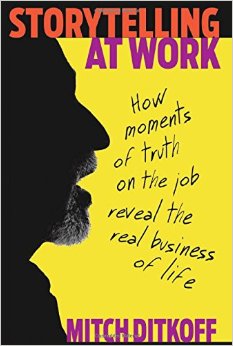
3. WHY IS STORYTELLING SO POWERFUL?
For the same reason why the sun is powerful. It sheds light, gives warmth, and sustains life. Storytelling is the simplest, most direct way to deliver a meaningful, memorable message. Deconstruct any scripture or holy book and you will discover that story is the DNA. Story is how our ancestors, since the beginning of time, communicated their wisdom. And story is how we teach our children. In the business world, where "time is money", storytelling is the most cost-effective way to cut to the chase.
4. WHY DID YOU WRITE THIS BOOK?
Because after 27 years of being an innovation provocateur to a wide variety of Fortune 500, mid-sized, and small companies, I realized that the most effective way to spark the innovation mindset was to tell stories. And while there is always a place for case studies, data dumps, pep talks, and PowerPoint shows, it is storytelling, I have discovered, that gets to the heart of the matter in the least amount of time.
5. HOW DOES STORYTELLING SPARK INNOVATION?
Innovation only happens when a critical mass of inspired, committed people go beyond the status quo in a sustained way. For this to happen, their minds need to be open and their ability to translate thought into action needs to be fully functioning. Story is the fuel for this creative fire -- the direct transmission of soulful soundbytes of wisdom that change individual behavior and, by extension, entire company cultures.

6. I'VE GOT A BUSINESS TO RUN. HOW CAN STORYTELLING IMPROVE MY BOTTOM LINE?
I've got a business to run, too. But all businesses, whether they are Fortune 500 companies or start-ups require an engaged workforce. One of the simplest ways to engage your workforce is to give them vital opportunities to inspire each other. And the simplest way to do that is to encourage them to share their life changing insights via personal story telling. Instead of breaking the bank to bring in "the experts", allow your people to share their deep expertise with each other. Where is their expertise hiding? In their stories -- in the rarely spoken moments of truth that happen to them on the job.
7. HOW CAN MY COMPANY LEVERAGE THE POWER OF STORYTELLING?
Simple. Launch Wisdom Circles, lightly facilitated small group gatherings where open-minded people get a chance to share their insights, best practices, and wisdom with each other. Facilitating Wisdom Circles is easily learned via onsite or online training. 90 minutes is all an aspiring Wisdom Circle facilitator needs to get in the zone.
8. CAN YOU GIVE ME SOME EXAMPLES OF WHAT YOU MEAN BY MOMENT OF TRUTH STORIES?
I'm From Woodstock. Yes, I Am!
The Afghan Cab Driver
It All Began With Balls
Follow Your Feeling, Not the Money Trail
The Uptown Beggar
The Brilliant Complaint Department
Real Moments of Truth on the Job
9. WHAT ARE PEOPLE SAYING ABOUT YOUR BOOK?
"I truly LOVE this book! The last time I read anything this good was Robert Fulghum's All I Really Need to Know I Learned in Kindergarten, and that was 25 years ago! With Storytelling At Work, Mitch Ditkoff has delivered a modern classic on how to communicate with wisdom. Kudos!" -- Rowan Gibson, author of The Four Lenses of Innovation
"Mitch Ditkoff's powerfully written book shows us how storytelling, well done, humanizes the world of work. But even more than that, it helps us pause, go beyond convention, and tune into the deep well of timeless wisdom within." -- Tim Gallwey, Author of The Inner Game of Tennis
"Storytelling at Work is filled with Eureka moments that will spark your creativity and ignite your motivation. Mitch Ditkoff has a magical ability to elevate the routine work of everyday life. Original and deeply insightful!" -- Marshall Goldsmith, author of the New York Times and Wall Street Journal #1 Best Seller, Triggers
"Mitch's storytelling reminds us that the truth is rarely in the bottom right corner of an Excel spreadsheet. It's already inside of us." - Jon Bidwell, Chief Innovation Officer, Chubb Insurance
"Mitch Ditkoff is a master storyteller, weaving tales that not only draw you in, but invite you to see the world with wider eyes. This gem of a book lovingly inspires us to step a little more bravely outside our box." - Susan Stiffleman, Author of Parenting with Presence
The Storytelling at Work workshop
Sparking Innovation with storytelling
MY FORTHCOMING BOOK: Storytelling for the Revolution
MitchDitkoff.com
Posted by Mitch Ditkoff at 02:51 PM | Comments (2)
November 21, 2016Trust What You Know, Then Speak
A 5:28 story of the time I overslept before a big presentation to 200 bankers. I learned something very valuable that day and I am honored to share it with you.
Excerpted from this book
My storytelling workshop
My storytelling blog
Posted by Mitch Ditkoff at 10:19 AM | Comments (0)
October 26, 2016Deciphering the Secret Code of Tacit Knowledge

What is it that all human beings share in common other than the need for air, water, and the undeniable fact that they will answer this question in a wide variety of ways? Well, at the risk of disturbing the people likely to answer this question in a wide variety of ways, I would venture to say a deeply ingrained need to know -- a search for the kind of knowledge needed to thrive in this world.
For some of us, this knowledge-seeking impulse revolves around survival -- how to grow food, create shelter, and avoid being eaten by the nearest predator. For others, perhaps those whose survival needs are already met, this knowledge-seeking drive takes the shape of more esoteric knowing -- understanding how the universe works, for example, or how to make a killing in the world of credit default swaps . For others, with more of a spiritual bent, it might take the shape of "knowing God" or "knowing the Self."
Regardless of the knowledge-seeking realm that drives a given individual, all three groups of people share one thing in common -- and that is a thirst to understand something they don't yet understand -- an insight, know-how, or wisdom they believe will add more value to their lives.

If this impulse towards knowing is, indeed, universal, then the question we need to be asking ourselves is: "What is the most effective way to obtain the knowledge we seek?" How do we learn what we don't yet know? And, conversely, how do we know what it is we need to learn?
Traditional knowledge seekers answer this question in fairly predicable ways -- an approach that usually frames the missing knowledge as a commodity that can be secured. "Ask someone who knows", might be one person's approach. Or "read a book" or "take a class" or, more recently,"Google it" -- the common assumption being that our missing knowledge is codified somewhere and can be communicated in a way that is transferable. And while there are definitely benefits to this kind of explicit knowledge transfer, the approach is inherently flawed, given the fact that there are many "things to learn" that cannot be learned this way.
Riding a bicycle, for example, is more easily learned by observing somebody riding a bicycle and then actually getting on a bike and experimenting than it is by reading a book about bike parts or the physics of bike movement. The same holds true for learning a language or kneading dough -- neither of which can be mastered by reading a list of instructions from "experts."
Each of these activities require a transfer of tacit knowledge -- the difficult-to-describe, intuitive, experience-based wisdom from someone "in the know".
It was Michael Polanyi, in 1958, via his magnum opus, Personal Knowledge, who first introduced the concept of "tacit knowledge" to the Western world -- his attempt to communicate that "we know more than we can tell" and that this knowing requires extensive, ongoing, personal contact with people-in-the-know, respect for prelogical knowing, practice, and a healthy dose of trust.
Some years later, Japanese organizational theorist, Ikujiro Nonaka, added his take on the matter, applying the tenets of tacit knowledge to the now growing field of knowledge management.
Whereas science is "know why" and networking is "know who", tacit knowledge is "know how"-- how homo sapiens (the "wise ones") transfer what they know to others in the most elegant, effortless, and effective way possible.
These days, as technology continues to escalate at an exponential rate, markets shift, and employee turnover increases, many forward thinking companies are doing what they can to codify their knowledge, building sophisticated software and knowledge management systems to ensure the ongoing transmission of know how within their enterprise.

And while their attempts are laudable, the fact remains that the transfer of tacit knowledge -- the intuitive, hard to articulate, feeling level knowing that is often the difference, as Mark Twain once explained, between lightning and the lightning bug -- remains extremely difficult to capture.
What does all of this have to do with storytelling? A lot. Because story remains one of the most effective ways human beings have discovered to communicate the essence of what they know and value.
And while it's true that tacit knowledge can never be 100% codified, the fact remains that story is know how's closest surrogate. Indeed, story is how the great Teachers, since the beginning of time, have chosen to communicate their message. If you have any doubts, all you need to do is deconstruct your favorite holy book and you'll soon discover that story (in the form of parable, allegory, and myth) is the main ingredient.
The bottom line? If you want to increase the amount of tacit knowledge transfer in your organization, community, team, or family find a way to go beyond the two-dimensional transfer of explicit knowledge. What follows are simple ways to begin:
1. Conduct interviews with your organization's tacit knowledge keepers
2. Create opportunities for people to observe and/or apprentice with your organization's tacit knowledge keepers
3. Record, distribute, and tell organizational stories that communicate key learning, insight, and wisdom
4. Initiate more hands on action learning (where doing replaces rote learning and intellectualizing.)
"Education is an admirable thing, but it is well to remember, from time to time, that nothing that is worth knowing can be taught." -- Oscar Wilde
Tacit knowledge workshop
Idea Champions
Excerpted from STORYTELLING AT WORK
Posted by Mitch Ditkoff at 01:15 AM | Comments (0)
October 07, 2016It All Began With Balls
Here's a fun, 7-minute story about Idea Champions big breakthrough soon after we started the business -- inspiration for YOU to do something different, provide your clients an EXPERIENCE, and have some fun along the way. "If you always do what you've always done, you'll always get what you've always got."
This story in the Huffington Post
Excerpted from this book
Posted by Mitch Ditkoff at 07:59 AM | Comments (0)
August 02, 2016Share Your Story!
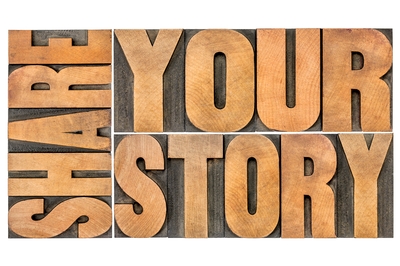
Stories are powerful. They open minds, shift behavior, inspire, and are remembered -- unlike that last powerpoint show you saw. Stories are the simplest, fastest way to communicate meaningful messages -- an especially important thing for people in business to remember where "mindshare" is at a premium. But you already know that. Intrigued? Click here for 13 video excerpts from my book, Storytelling at Work -- none longer than seven minutes.
If you are intrigued by the presentation platform I am using (GlowDec), let me know. This cool online tool will officially launch on Labor Day. Tweaks are still being made. Viewable only in Chrome and Firefox for now. Here's your sneak peak.
Idea Champions
About Mitch Ditkoff
Posted by Mitch Ditkoff at 03:25 PM | Comments (0)
March 23, 2016Tiny Sparks of Light

EDITOR'S NOTE: A few weeks ago, I asked my Facebook friends to send me a story their father liked to tell. The one that follows, submitted by the appropriately named, Michal Story, touched me deeply and reveals a common humanity we all share, even during times of difficulty. I hope you enjoy it. If YOUR FATHER, like Michal's, had a favorite story he liked to tell, please consider sending it to me for possible publication on this blog.
"My father was a man of many secrets. Not by choice, but by temperament. He rarely spoke of his past. He'd come from a chaotic childhood and left home at 16 to join the Navy. He loved the camaraderie it afforded him and was proud of his service. He was what they called a 'lifer.'
I was a teenager in the 1960s when my father and I bonded through watching football and tuning up the car together on weekends. But it was between his tours of duty in Vietnam, when he invited me out onto our patio in the late Louisiana summer evenings, that I realized just how close we were. He'd sip scotch and smoke cigarettes while we listened to Hank Williams and Patsy Cline on the record player. Most of the time, we'd sing along with Hank and tell corny jokes. And sometimes, he'd comment on the heavy, warm humid air that reminded him of times in Vietnam. It was these times that I knew was in for a good story.
He spared me the horror he must have witnessed and would tell me stories of his friends and how they would pass the time. One particular story still strikes me.
I don't remember where, specifically, he was stationed, but it was on a border between North and South Vietnam. There was a rickety four-foot tall barbed-wire fence which separated the enemies and they could hear distant sporadic gunfire and explosions during the day. The fencing spanned a treeless, grassy field where each side could easily see the other's buildings. There was no movement between them during the day. My Dad's squadron's sole mission was to ensure that no one crossed. And no one ever attempted to cross from either side. It was an "easy tour" as he called it.
Late at night, and every night, a very different scene took place, however -- one my father said haunted him in a way that none of his other war experiences had. It would take place long after the gunfire and bombing had settled down to an almost peaceful calm.
My father and his brothers-in-arms would spot tiny sparks of periodic light emanating from the buildings across the field -- almost like a signal. The handful of American men on the night shift would approach the fence without hesitation, as if they were back home taking a leisurely stroll. As they approached, they'd see their counterparts, equally relaxed, approaching the fence. There they would meet and exchange brief greetings in whatever limited language each could understand -- making hand gestures, offering up cigarettes and, from the dim light of a match, show each other photographs of their families back home. Sometimes they would exchange odd wares unique to their respective cultures.
These men were no longer enemies in this nightly routine. They were just people managing to turn a blind eye to what divided them -- an American on one side, a Viet Cong on the other. No one knew when or how this ritual started. But it was repeated, nonetheless, by each new troop arrival. Was it from boredom? Curiosity? It didn't really seem to matter. Whatever the reason, it was a chance to be human again. The only danger seemed to be in caring."
One of my father's favorite stories
Posted by Mitch Ditkoff at 01:40 AM | Comments (1)
December 15, 2015The Joe Belinsky Factor Revealed

See this guy? His name is Joe Belinsky and for many years he worked in a tire company -- Goodyear Tire to be more exact. I learned something from Joe about TIME that is actually quite cosmic, though it took me seven years to figure it out. The story of what I learned was was just published today in the Huffington Post. A four-minute read.
Excerpted from Storytelling at Work
Idea Champions
My new storytelling blog
Posted by Mitch Ditkoff at 01:30 AM | Comments (0)
December 02, 2015The Storytelling at Work Podcast
Will Sherlin, of The Innovation Engine Podcast, interviews Mitch Ditkoff, author of the newly published Storytelling at Work.

Posted by Mitch Ditkoff at 03:19 PM | Comments (0)
November 25, 2015STORYTELLING AT WORK Just Published!

I am happy to announce that my new book, Storytelling at Work, has just been published and is now available, on Amazon, in both paperback and Kindle editions. Whoo! Whoo!
If you believe in the power of storytelling to engage, inspire, and transmit wisdom, this book is for you. The first part of the book is composed of 38 of my own highly entertaining "moment of truth" stories from the front lines of business. The second part is composed of 16 evocative essays on the art and science of storytelling.
If you have enjoyed this blog, you will definitely enjoy this book and also my new Storytelling at Work blog
Buy on Amazon
Buy in bulk from Idea Champions website

Posted by Mitch Ditkoff at 11:21 PM | Comments (0)
November 22, 2015What Kind of Stories Will You Tell?

Here's a story you can probably relate to: You are walking down the street when a friend, coming the other way, stops, looks you in the eye, and asks "Whassup?" It's a question you've heard a thousand times before -- the default, in-the-moment, open-ended salutation.
Your choices are many. You can answer any way you want, from the predictable "Fine, whassup with you?" to an elaborate monologue on any number of topics: the weather, your company's funky benefit plan, the economy, the latest terrorist attack, your aching back and so on.

In that moment, there is no correct answer. You get to choose what to talk about. You get to decide what story to tell. What you DON'T get to decide is the impact your story will have on the other person. That's up to them. But know this: your story will have impact. Everything we say, everything we do has impact, even a seemingly casual moment of passing a person on the street.
If you watch the TV news, you can see this phenomenon playing out daily. With an almost infinite number of topics to report on, TV news is mostly about bad news: war, violence, political unrest, terrorism, famine, corruption, plane crashes, murder, scandal, disease, gossip, and unemployment with an occasional "human interest" story thrown in for good measure so we don't all jump off the same bridge at the same time and screw up their ratings.
68% of Americans believe that TV news broadcasts focuses way too much on bad news and yet we keep tuning in. The impact? Our state of well-being declines. We become sadder, more negative, more hopeless and depressed, exacerbating whatever personal worries and anxieties we already had before tuning in.
I'm not suggesting that news outlets airbrush the negative out of their reports. Nor am I suggesting that they stop reporting on the bad stuff happening around the world. What I'm suggesting is they find more of a middle path and make more of a concerted effort to change the narrative to honor what's good and holy about being alive.
You and I are also news stations. You and I are also reporting on what's going on in the world and in the organizations we work for. Like the TV executives behind the scenes, we also get to decide what stories to tell. That is our moment of truth. That is our broadcast. Will our stories be local versions of the nightly news, skewed to what's bad and wrong, full of gossip and complaint, or will we choose to tell a NEW story, one infused with possibility, progress, insight, awareness, and hope?
JUST PUBLISHED: Storytelling at Work
Available on Amazon (book cover image not uploaded yet)
Storytelling at Work Facebook page
Frequently asked questions about the book
Posted by Mitch Ditkoff at 12:52 PM | Comments (0)
November 01, 2015Great Storytelling Quotes
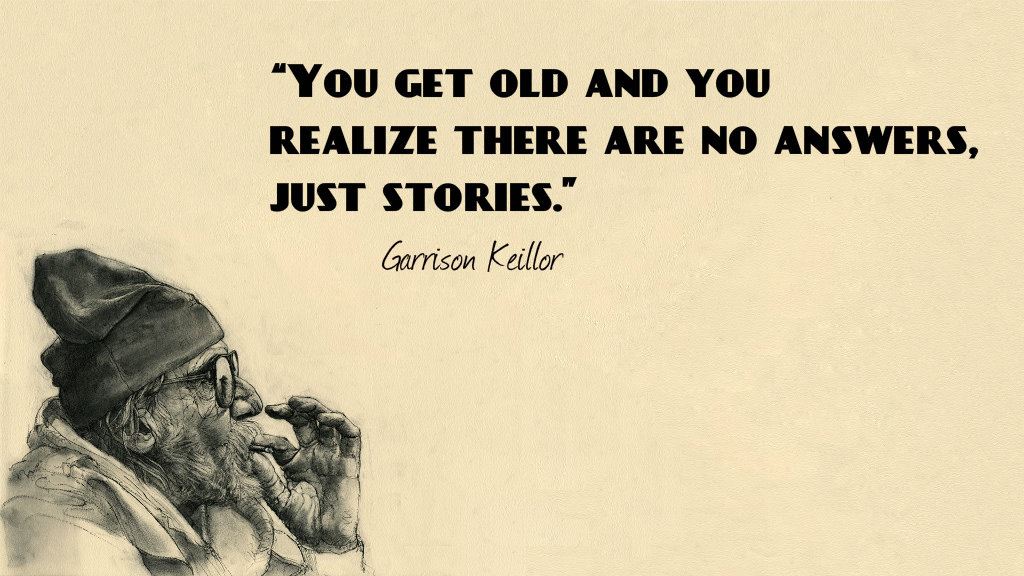
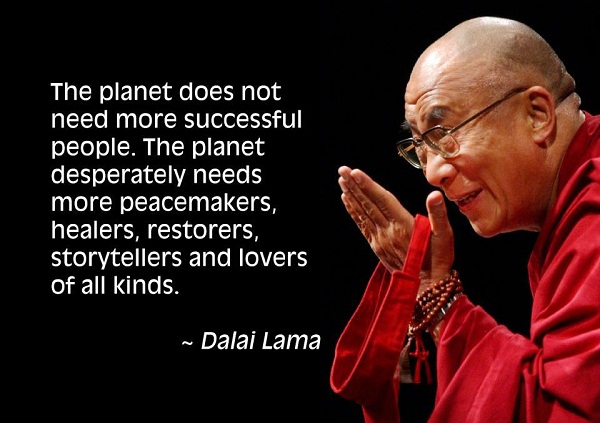
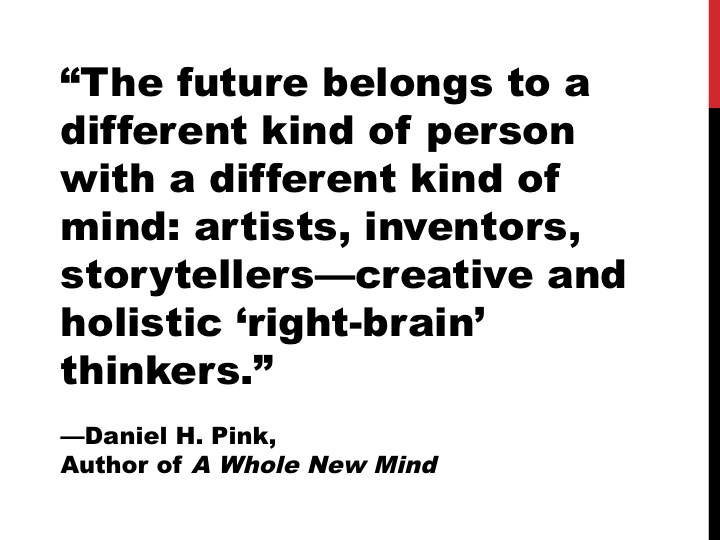
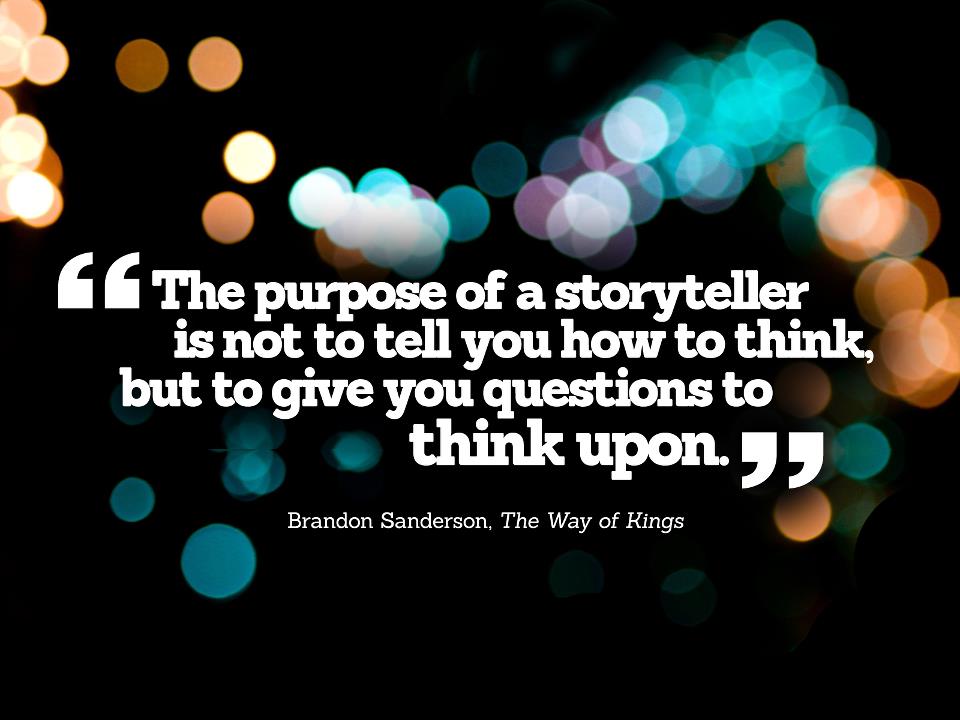

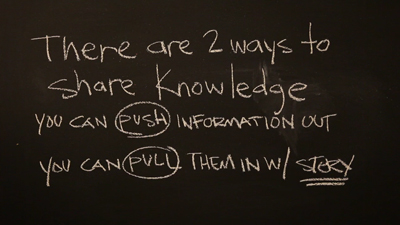
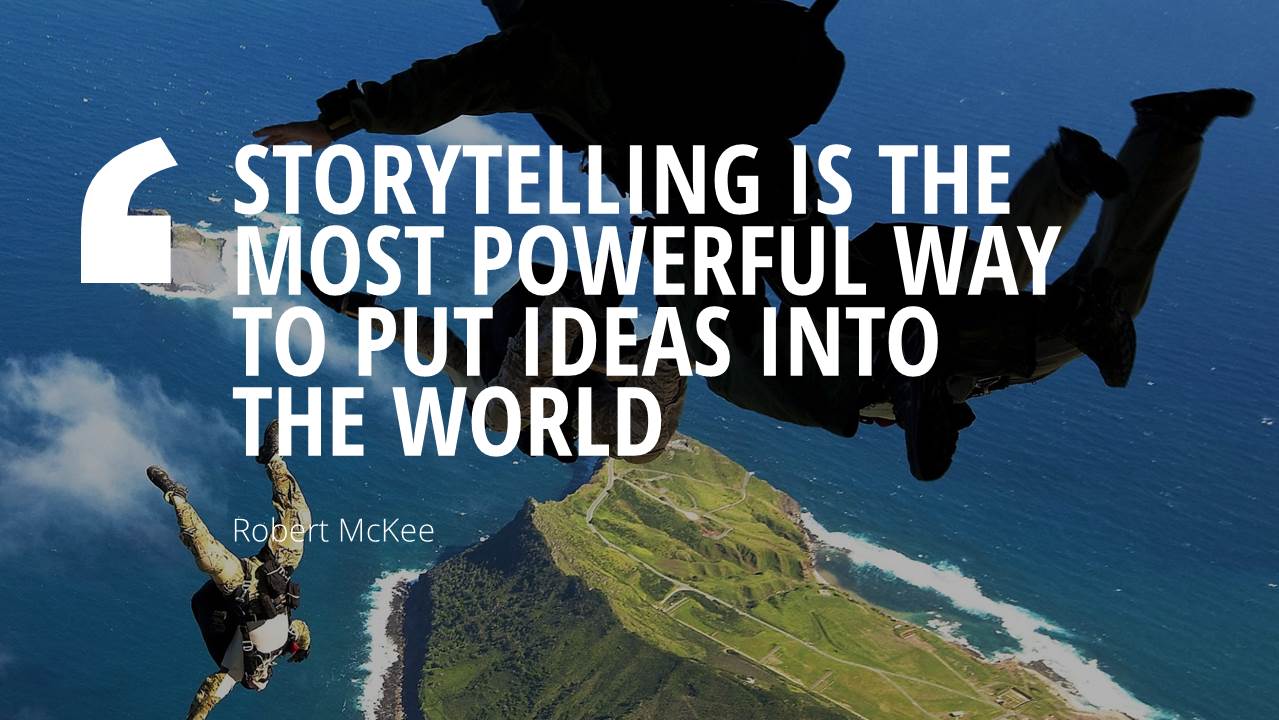
Storytelling at Work: Published on 11/8
FAQ about my book
Posted by Mitch Ditkoff at 09:52 PM | Comments (0)
October 28, 2015One Simple Reason Why Storytelling is So Timelessly Powerful
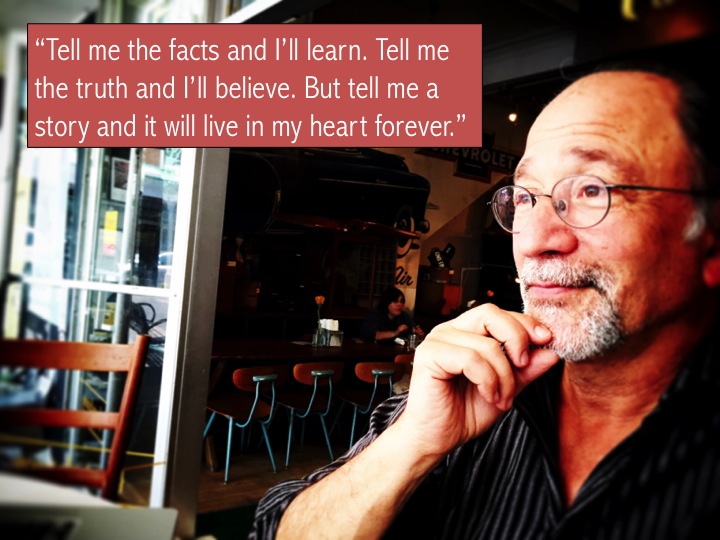
Storytelling at Work, pub date: 11/12
FAQ about my book
25 quotes on the power of storytelling
Why create a culture of storytelling
The above quote is a classic Native American saying.
Posted by Mitch Ditkoff at 01:44 AM | Comments (0)
October 12, 2015I'm from Woodstock. Yes, I Am.

I'm from Woodstock. Yes, that Woodstock, the famous Woodstock -- the most famous small town in the world, some people say.
Former home to Bob Dylan.
Jimi Hendrix lived here for a summer in the house right across the street from where I live now. John Sebastian still lives here, as do a ton of other musicians, artists, writers, healers, therapists, car mechanics, plumbers, electricians, and just about anyone else you'd expect to live in a small town.
Other than winter lasting six weeks too long, I love Woodstock. I've been a resident for 18 years and I'm proud to call it my home.

That being said, in the early days of starting up my consulting business, I noticed a curious phenomenon about Woodstock, or at least my relationship to it, whenever a client or prospective client asked me where I was from.
Euphemism-itus.
If I declared myself to be resident of Woodstock, I ran the risk of not only being stereotyped as a counter culture whack job, but being in cahoots with an entire generation of freaks for whom the word "corporation" was second only to "military industrial complex" on the list of buzz kills -- a moment fully capable of leaving my inquisitor with the impression that I was either dangerous, highly unqualified to be of value to their company, or a candidate to be paid in 100 pound bags of chickpeas.
So, I decided to take the low road.
With a big mortgage and a family to support, I saw no reason to scare away potential clients -- especially potential clients who, when push came to shove, were asking where I lived just to break the ice.

"Two hours north of Manhattan" was my standard response. "Upstate New York" was my backup, followed by "The Hudson Valley", "65 miles south of Albany", and the always dependable "Foothills of the Catskill Mountains".
So there I was in Munich at the International Headquarters of Allianz, one of the world's leading financial services institutions, with 142,000 employees and billions in sales.
My task? To lead a workshop, the next day, for the company's hard driving senior leadership team in an effort to jump start the launch of a company-wide effort to "gain a competitive edge through increased innovation".
Corporate speak? Of course it was. But it didn't matter to me. I didn't care what euphemisms my clients used to frame their business challenges. If I sensed even the smallest willingness on their part to become more innovative, I was there.

There, in this case, was the well-appointed, pre-dinner reception for Allianz' Senior Team and a handful of outside, consultants, like me, who had been flown in from God knows where to help the company reach its ambitious business goals.
The dress code? Business casual. The bar? Open. The client? Dutifully introducing me to anyone he could collar.
And so it went, the small talk, the head nods, the firm handshakes -- me patiently waiting for the waiter with the pizza puffs and the inevitable moment when the "Where do you live?" question would head its ugly rear.
Somewhere, in between my first and second glass of chilled 1987 Riesling, standing next to three large German men I had just been introduced to -- Guenther, Heinrich, and Hans -- the question was asked.
I opened my mouth to say "Two hours north of Manhattan", but out came "Woodstock".
Maybe it was the wine or maybe it was the cumulative affect of the past ten years of mouthing geographical euphemisms. I don't know. But whatever it was, I knew this was going to be an interesting moment.
For three very long seconds, no one said a thing. The word just hovered in the air like some kind of Superbowl Blimp.

Guenther was the first to speak.
"Wow!" he announced. "Did you actually go to the festival?"
Hans smiled broadly. "My older cousin went. Lucky bastard. I was too young."
Heinrich just stood there, expressionless, saying nothing. Then he raised his right hand and gave me a rousing high five.
"I love Joe Cocker!" he announced.
Somehow, I got the feeling that tomorrow's innovation workshop was going to be just fine.
Excerpted from my forthcoming book, STORYTELLING AT WORK: How Moments of Truth on the Job Reveal the Real Business of Life.
Idea Champions
My keynotes
Innovation Kits
Posted by Mitch Ditkoff at 12:12 AM | Comments (2)
May 20, 2015What Kind of Stories Will You Tell?

Here's a story you can probably relate to.
You are walking down the street when a friend, coming the other way, stops, looks you in the eye, and asks "Whassup?" It's a question you've heard a thousand times before -- the default, open-ended salutation. Your choices are many. You can answer any way you want, from the predictable "Fine, whassup with you?" to an elaborate monologue on any number of topics: the weather, your vacation plans, the economy, the latest terrorist attack, local politics, your job, and the latest viral video.
In that moment, there is no correct answer. You get to decide what story to tell. What you don't get to decide is the impact your story will have. That's up to the listener. But know this: your story will have impact. Everything you say, everything you do has impact, even a seemingly casual moment of passing a friend on the street.
If you watch TV, you can see this phenomenon playing out daily. With an almost infinite number of topics to report on, the news TV reports on is mostly bad news: war, violence, political unrest, terrorism, famine, corruption, plane crashes, murder, scandal, disease, gossip, and unemployment with an occasional human interest story thrown in for good measure.
68% of Americans believe that TV news broadcasts focus way too much on bad news and yet we keep tuning in. The impact? Our state of well-being declines. We become sadder, more negative, more hopeless and depressed, exacerbating whatever personal worries and anxieties we already had before tuning in.
I'm not suggesting that news outlets airbrush the negative out of their reports. Nor am I suggesting they stop reporting on the bad stuff that's happening around the world. What I'm suggesting is that they find more of a middle path and make more of an effort to change the narrative to honor what's good and holy about being alive.

You and I are also news stations. You and I are also reporting on what's going on in the world. Like the TV executives behind the scenes, we also get to decide what stories to tell -- even on the street when a friend asks us "Whassup?" That is our moment of truth. That is our broadcast.
Will our stories be local versions of the nightly news, skewed to what's bad and wrong, full of gossip and complaint, or will we choose to tell a new story, one infused with possibility, progress, insight, awareness, and hope?
Excerpted from this book
The Story Workshop
The MotherShip
Posted by Mitch Ditkoff at 08:35 PM | Comments (0)
May 08, 2015Why Create a Culture of Storytelling?

Unless you've been living in solitary confinement for the past few years, chances are good that you are a member of some kind of organization or community -- a gathering of people who have come together in service to a common goal. Whether it's a Fortune 500 company, non-profit, or softball team, we are all, whether we know it or not, involved in the process of creating organizational culture -- "a collective way of thinking, believing, behaving, and working."
How conducive the cultures we create are to the success of our missions is anyone's guess, but what is not a guess is the fact that high performing organizations exhibit the same kind of mission-enabling qualities: trust, shared vision, collaboration, clear communication, diversity of thought, commitment to learning, freedom of expression, and a sense of belonging.
While there are many ways to enhance these qualities, the most effective and least expensive way is storytelling -- a culture-building phenomenon that's been going on since language first began. Simply put, in order for a group of people to accomplish extraordinary goals, they need to know each other at a level far beyond title, role, or resume.
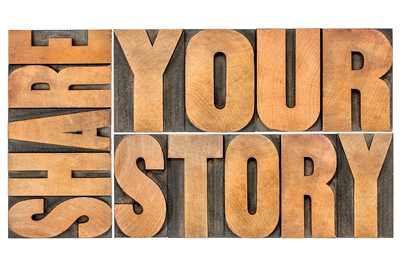
When people tell their stories to each other and are heard, magic happens. Barriers dissolve. Connections are made. Trust increases. People bond. Knowledge is transmitted. Wisdom is shared. A common language is birthed. And a deep sense of interdependency is felt. That's why, in days of old, our ancestors stood around the fire and shared their stories with each other. Survival depended on it and so did the emotional well-being of the tribe.
Times have changed since then, as have our methods of communication.
Where once story reigned supreme, now it's technology and all his attention deficit offspring: texting, Twitter, Instagram, email, Facebook, post-its, and drive-by pep talks.
What we've gained in efficiency, we've lost in effectiveness. The spirit of the law has been replaced by the letter. People may be transmitting more, but receiving less. Data, information, and opinions are shared, but not much meaning. And it is meaning that people hunger for. It doesn't take a rocket scientist to figure out why employee engagement is down in so many organizations these days. It's because so many people are feeling isolated, disconnected, unseen, and unheard.
If you are part of an organization, no matter what it's shape or size, it's time for some meaning making -- and that meaning making begins by creating engaging opportunities for everyone, from mail room to board room, to share their stories with each other.
What story will you tell first? And when?
Excerpted from STORYTELLING AT WORK, to be published in the Fall.
Idea Champions
Posted by Mitch Ditkoff at 05:04 PM | Comments (0)
March 20, 2015WANT TO RAISE THE BAR FOR FOLLOW UP? Tell This Story

One of the biggest complaints I hear from my clients, especially clients who have lead or participated in brainstorming sessions, is that follow-up is often underwhelming.
People who attend these kinds of meetings may generate a lot of ideas, but things tend to go south after after people leave the room. Action plans and "next steps" may have been dutifully done, but even so, those kinds of efforts don't always bear fruit.
If you want to raise the odds for real follow-up and completion actually happening, consider telling this story as a prelude to any action planning you do. It will cut through the rhetoric and help people have an emotional, memorable response to your request for meeting participants to actually complete their tasks in a mindful way.
Idea Champions
High Velocity Brainstorming
Our storytelling workshop
Posted by Mitch Ditkoff at 01:26 PM | Comments (0)
February 28, 2015How to Deliver a Meaningful, Memorable Message Quickly

HINT: It has nothing to do with pep talks, powerpoint shows, case studies, statistics, data, performance reviews, carrots, or sticks. Give up?
Stories. That's right. Stories. Storytelling, done well, is the most effective way to deliver a meaningful, memorable message. It's been going on since the Stone Age. Why? Because it works.
Here's my 5-minute talking head video on the topic.
25 quotes on storytelling
As it applies to teenage girls
One of my stories
Our storytelling workshop
Posted by Mitch Ditkoff at 01:36 PM | Comments (1)
January 03, 2015The Relationship Between Storytelling, Humor, Innovation, and My French Mother-in-Law
 OK. I know you don't have 34 minutes to listen to this podcast. Of course you don't have 34 minutes. Do you know ANYONE not in traction or jail who has 34 minutes? But you might have three minutes, yes? Three minutes to listen to my stellar response to the interviewer's first question. Three minutes. That's like 180 seconds. Not much time at all. That's only about 128 seconds longer than the time you've spent reading this far. C'mon, click already. You got places to go, people to meet!
OK. I know you don't have 34 minutes to listen to this podcast. Of course you don't have 34 minutes. Do you know ANYONE not in traction or jail who has 34 minutes? But you might have three minutes, yes? Three minutes to listen to my stellar response to the interviewer's first question. Three minutes. That's like 180 seconds. Not much time at all. That's only about 128 seconds longer than the time you've spent reading this far. C'mon, click already. You got places to go, people to meet!
Wisdom at Work
Idea Champions
Catalytic Keynotes
Posted by Mitch Ditkoff at 02:35 PM | Comments (0)
December 27, 2014Storytelling and Business Podcast

If you are interested in the relationship between storytelling and business, you might like this just released 34-minute podcast -- Innovation Engine interviewing Idea Champions' co-founder and President, Mitch Ditkoff.
Like the poet Muriel Rukyser once said, "The world is not made of atoms. It is made of stories."
Storytelling workshop
Power of storytelling in business
25 quotes on storytelling
Idea Champions
Posted by Mitch Ditkoff at 02:50 PM | Comments (3)
September 09, 2014The Big, Hairy Moment of Truth
There is a moment in everyone's life when all the cards are on the table, all the chips, too -- the moment of truth when the entire universe, it seems, is conspiring to call one's attention to the choice we have every single minute of the day to let go of our past and move towards what is truly calling us, even if we have no idea where it will lead.
One such moment happened for me in 1969, during my first and only semester as a graduate student at Brown University's prestigious MFA Creative Writing Program.

Like most long-haired, sallow-cheeked, Vietnam-phobic seekers of truth whose depression-imprinted parents would have much preferred him to have chosen law, medicine, or teeth over poetry, I found myself, at the ripe old age of 22, majorly existentially challenged -- sleeping 12 hours a day, posting my newly minted poems on trees at midnight, and feverishly reading Rilke, Wallace Stevens, and William Carlos Williams just in case the conversation turned thusly with any number of far more well-read poetry professors of mine engaging me in literary conversations at any number of ultra hip parties I kept getting invited to -- the kind of heady gatherings where Kurt Vonnegut and other traveling bards kept showing up, laugh lines around their eyes unable to mask a lifetime's worth of sadness, disappointment, and despair.
It was at one of these Ivy League literary soirees, emboldened by drinking and smoking more than I should have that I found myself consumed with a burning question rising from my loins -- the kind of question that, if unspoken, everything I ended up writing from that moment on would be nothing more than a clever overcompensation for my inability to speak my truth now.
Approaching my first professor, large glass of cheap red wine in my right hand, I let the question fly: "If you could be anywhere in the world, at this precise moment in time, where would you be?"
"Hmmm...", Professor #1 replied, dramatically pausing and looking to the ceiling just in case a beautiful co-ed or his editor was standing nearby, "excellent question, indeed! Let me see... if I could be anywhere in the world at this precise moment in time where would it be? Well... that would be Baja California. Definitely Baja Calfornia. I love it there."
Nodding and doing my bearded graduate student best not to bump into anyone as I made my way across the suddenly tilting-to-the-left room, I spotted my second professor, an unhappily married, hammock-bellied, minor poet of a man who, I knew, had been, for the past few weeks, hitting on the same unhappily married shopkeeper in town that I was.
"Guatemala," he blurted. "For sure, Guatemala, especially the small village whose name I can't, for the life of me, remember right now -- a village just 15 miles outside the capital city. Love that place!"
Fueled as I was by what was now emerging as a definable pattern of response from my professors, I quickly found my way to the bar where Professor #3 was holding court, a large hummous stain on his too small polyester shirt.
"Where would I be if I could be anywhere in the world?" he repeated. "That's easy! The Pacific Northwest. How I love the rain and the fog! What a great place to get away from it all. You should go there sometime."
As I walked away, 22-year-old-knowingly, to the last of the lot, it began dawning on me that none of my so called mentors wanted to be where they were. All of them wanted to be SOMEWHERE ELSE -- a better place, a warmer place, a more exotic place. And here I was, restless, semi-depressed, aspiring to be like them one day -- when 20 years later someone else would be standing in this exact same place asking ME where I wanted to be and my answer, like those of my professors, would very likely be SOMEWHERE ELSE.
Why not leave NOW while I could still get out of town? Why not follow my muse?
If I needed proof, I had all the proof I needed. Four professors. Four questions. Four of the same answers.
I slept very well that night and the next night, too. When my Monday morning class rolled around -- the class Professor #1 began by calling my name and noting with tenured gravitas that he wanted to SEE ME immediately after class, a request that indicated only one thing -- the jig was up, that I, Mr-Attempt-to-Outstare-My-Professors-So-They-Would-Think-I-Knew-More-Than-I-Did, was about to be summarily kicked out of school, underwhelmed as my teachers were by the spotty quality of my work and the insidious ways in which Lawrence Ferlinghetti and Dylan Thomas had leaked into my writing, not to mention the fact that I still had no clue why Wallace Stevens was such a big deal.
"Mr. Ditkoff," Professor #1 announced as the class emptied out, "the faculty and I... after much deliberation... have decided to give you a full teaching scholarship."
"That's interesting," I replied. "I quit."
"Quit?" he replied. "Quit? You can't quit. Do you realize what you're passing up here -- a totally free education."
"Like I said, sir. I quit. My education needs to happen somewhere else."
Which is exactly what happened.

Two days later I was no longer a Brown University graduate student. Two weeks later I was living where I really wanted to live -- Cambridge, fucking Massachusetts, and doing what I really wanted to be doing -- being a night desk clerk at a second rate hotel -- plenty of time to read what I wanted, plenty of time to write -- and plenty of time to live the poetry of life -- out of which the books would later flow.
THE COMMENTARY
It doesn't take a genius or a Professor at an Ivy League university to figure out the moral of this little story. DO WHAT YOU WANT TO DO. LIVE WHERE YOU WANT TO LIVE. AND DO IT NOW, NOT LATER. Time is passing. Life is too short to be living someone else's concept of it, too short to be living even your concept of it. There is something, beyond logic, beyond reason, beyond your ability to understand, that is calling you. Listen to it. Honor it. Trust it. What others might call "quitting" isn't really quitting at all -- it's letting go of the past and moving into the moment called NOW.
Excerpted from Storytelling at Work.
Black and white photo of me at 22: Gary Alter
Mitch's clients
Idea Champions
What we do
Posted by Mitch Ditkoff at 03:17 PM | Comments (2)
August 07, 2014The Beggar

I have never been fired from a job. Except once -- a week after the man I wrote 350 speeches for in two years, Donald J. Manes, the Borough President of Queens, committed suicide in his kitchen because he knew he was just about to get busted for stealing more than one million dollars from the City of New York in what is now affectionately known as the Parking Violations Bureau scandal.
I wasn't fired because I had done anything wrong. I hadn't. I was fired because the successor to the Not-So-Honorable Donald J. Manes wanted to clean house in a "B" movie politically correct way to appease the irate public's need for reform. A new leaf. She was turning over a new leaf and a whole bunch of other metaphors being supplied to her by a newly hired PR advisor.
The bottom line? At 37, I was out of a job -- unemployed -- with an insanely exorbitant Upper West Side rent due in less than a month.

Having saved almost nothing from my speech writing gig and with absolutely no desire to write for yet another person with delusions of grandeur, I decided to go the artistic route and earn my living the honest way -- playing my clarinet in the subway.
The first day I made $8.00. There was no second day.
So I did what any, self-respecting, former English Lit major with a little known ability to recite Canterbury Tales in Middle English would do. I wrote. Not a screenplay. Not a suicide note. But a query letter to New York Magazine pitching an investigative journalism article on the beggars of Manhattan -- the real story, I declared, behind the people who panhandled for a living.
And so, for the next 30 days, that's exactly what I did -- walked the streets of the Big Apple, doing my underground reporter best to befriend the people most of us think aren't really beggars at all but con artists trying to fool us for a living, bad actors impersonating beggars so they can buy cheap wine and avoid the rush hour commute.
Thirty days I spent with them. Thirty days walking, talking, buying them lunch, and trying to discover the organizing principal around which my story would authentically take shape.
And I did. Find it, that is. The moment I met Fred.
His spot? 79th and Columbus, just one block from my apartment. His schtick? Pepe, his dog. Or more accurately, his sign for Pepe, his dog -- a portable cardboard sign painstakingly printed with a pen he found three weeks ago that let the world know he wasn't begging for himself, but for his faithful companion, a 10-year old mutt he found on the street and loved too much not to feed every day.

Standing there before this man, tape recorder tucked under my right arm, I couldn't help but smile. This was either the cleverest of panhandler scams or Fred was an uptown saint.
I looked at him and he looked at me. Then, with a crook of his head and a word I didn't understand, he signaled me to sit with him and Pepe on a blanket that had seen, shall we say, better days.
He told me his name, but not much else. We sat there, in silence, side by side, Pepe before us, as hundreds of people walked by, most casting glances, not coins.
Thirty minutes passed, then Fred, with a pained look in his eye, looked at me and asked if I would "mind his dog" while he went looking for a hotel or restaurant to relieve himself.
And so, for the next hour, I sat there on the blanket with Pepe, the sign, and a tin cup.
This being 79th and Columbus, many purposeful, well-dressed people walked by. All of them, of course, assumed I was the beggar.
"NO!" I wanted to scream. "You got it all wrong! I'm not a beggar. I'm a writer doing a story on beggars". But I couldn't find the words. Somehow, the dog and cat both had my tongue. I was speechless.
And then, not a single angel descending from heaven, I got it. I finally got it. I was a beggar. Yes, me. I was a beggar. I was absolutely no different than Fred. I wrote stories. He wrote signs. He was trying to get money. I was trying to get money. And both of us were asking for help.
When Fred finally returned, he had a large wet spot on his pants.
"Dude, what happened?" I asked.
Fred shook his head, attempting to cover the stain with his hand. "No one would let me in," he explained, a single slow tear rolling down his cheek. "I went to 15 restaurants and hotels and no one would let me in."
Also published in the Huffington Post.
Excerpted from my forthcoming book: WISDOM AT WORK: How Moments of Truth on the Job Reveal the Real Business of Life
American Humane Society
PEACECAST: What do you have to say?
Idea Champions
Posted by Mitch Ditkoff at 08:37 PM | Comments (0)
May 02, 2014Pixar's 22 Rules for Storytelling
Storytelling in Business
Share tacit knowledge at work
Posted by Mitch Ditkoff at 01:23 PM | Comments (0)
April 30, 2014What Are the Benefits of Storytelling in Business?

There's a new growth industry in town -- ORGANIZATIONAL STORYTELLING -- half art, half science and totally fascinating.
It's roots go back... let's see... um... er... 100,000 years -- long before written language -- the time when our ancestors stood around the fire and shared their wisdom in small groups. Not a tweet or YouTube video to be seen. Only wooly mammoths.
What are the REAL benefits of storytelling for organizations? That's what today's poll is all about. Three minutes is all it will take.
Idea Champions
Posted by Mitch Ditkoff at 11:53 AM | Comments (0)
April 09, 2014Storytelling in Business Infographic

Infographic: LookBookHQ and Beutler Ink
Sagacious storytelling in business
Great storytelling quotes
Idea Champions
Posted by Mitch Ditkoff at 04:25 PM | Comments (0)
Storytelling in Business Infographic
Infographic: LookBookHQ and Beutler Ink
Sagacious storytelling in business
Great storytelling quotes
Idea Champions
Posted by Mitch Ditkoff at 04:25 PM | Comments (0)
March 21, 2014The World Is Made of Stories
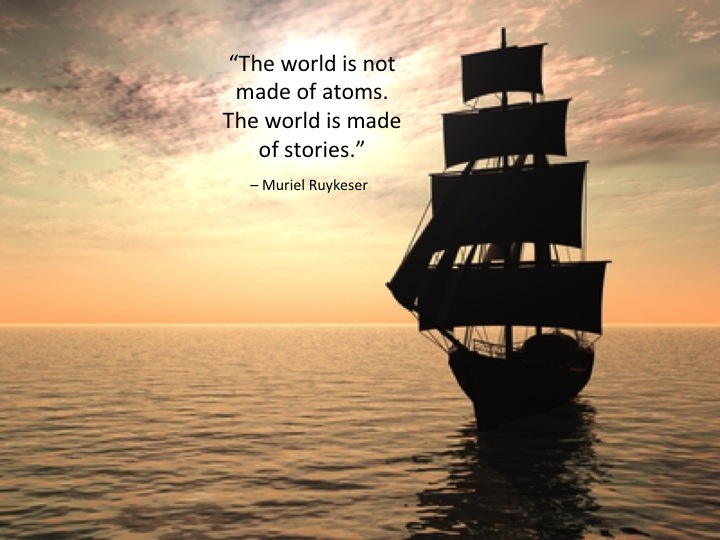
My book on this topic will be published in December. Click here if you want to know more about it and help make it happen.
Excerpt from the book
Posted by Mitch Ditkoff at 02:20 PM | Comments (0)
March 16, 2014How to Spark Wisdom in the Workplace
Dear Heart of Innovation Readers:
If you have received any value from this blog and would be interested in supporting my next, big project -- now launched as a GoFundMe campaign -- click here for a 3-minute video of me describing it and a written description of what the whole thing is all about -- a venture which includes the writing, publication, and promotion of a new book, Wisdom at Work, along with the launching of WISDOM CIRCLES in organizations around the world.
Whatever support you can provide is very much appreciated, Plus, you will be sent a copy of the book when it's published, if you want.
Mitch Ditkoff's GoFundMe campaign
Posted by Mitch Ditkoff at 09:35 AM | Comments (0)
March 10, 2014Writing Speeches, Saying Nothing

Henry Miller wrote 10,000 pages before a single word of his was ever published. Richard Bach had to endure Jonathan Livingston Seagull being rejected 18 times before it went on to sell 60 million copies. Salman Rushdie, after the publication of his Satanic Verses, spent a lot of time wearing disguises so he wouldn't be executed by a pissed off Ayotallah Khomeini and an entire nation of Fatwa-obsessed Muslims.

Me? My writer's come-uppance came in the form of a 24-hour ATM at Laguardia Airport.
But first, the back story...
When I was pounding the streets of Denver, Colorado, as an aspiring free lance writer, I once wrote a feature article for the American Humane Magazine. The story was well-received and inspired the Executive Editor, Eric Brettschneider, to send me a glowing letter of acknowledgment.
I kept his glowing letter of acknowledgment along with a few others I received, but since I couldn't eat them, decided to move to New York City in an attempt to reignite my stalled writing career.
The first call I made upon arriving in the Big Apple was to my one and only local fan, Eric Brettschneider.
Eric was not in. In fact, Eric was never going to be in, explained the woman who answered his phone. Eric, she went on to say, was no longer with the American Humane Society. He had "moved on". Precisely where she wasn't at liberty to say, but she could give me a forwarding number, which she proceeded to do.
Eric, answering his own phone, remembered me fondly and explained that he was now the Executive Assistant to the Borough President of Queens, the Honorable Donald R. Manes.
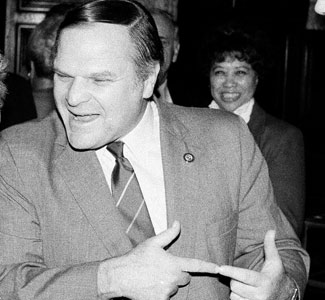
"Shit," I thought to myself. "Another dead end."
Eric, however, saw it very differently.
"Our speech writer is leaving next month," he explained. "Why don't you take a shot at writing Donald's State of the Union address? The pay is good and it'll give me a chance to see if you've got the right stuff to be our next speechwriter."
Yes, indeed, the pay was good. And so was the feedback. The Honorable Donald R. Manes was pleased with my work and so were the good people of Queens, happy to know that their not-yet-indicted Borough President had an excellent grasp of all the major local issues.
Months passed. I did some brochure writing for Citibank (boring), wrote an article for New York Magazine (rejected), and ate a lot of beans (kidney).
And then, like an unexpected tax refund from the Great State of New York, the new Executive Assistant to the Borough President of Queens called.
"Good news!" he exclaimed. "Our speechwriter just quit. Come in tomorrow for an interview with Donald if you want the job."
"This," I thought to myself, "is going to be one very short job interview," knowing how pathetically apolitical I was.
Yes, I knew that each state had two senators and that jaywalking was illegal, but after that my knowledge of the inner workings of government had some major holes in it.
My job interview was, indeed, short. But not in the way I expected.
Here's how it went:
1. Eric escorted me to the well-appointed, corner office of the Borough President of Queens.
2. I knocked and the door opened, revealing several American flags and a nicely framed photo of Mario Cuomo.
3. Donald Manes spoke: "Eric tells me you have a good sense of humor. True?"
4. "Yes," I replied.
5. Donald Manes smiled, "Good! You're hired."
That was it -- my initiation into the halls of power. I was not grilled about the Federalist Papers, not asked about my position on gun control, not invited into a dialogue about New York City's budget. One question. That's all I was asked -- probably the only question I could have answered at the time: Did I have a sense of humor?
Thus began my two-year career as a political speechwriter.
While many soul-sucking experiences happened to me during that particularly surreal time in my life, none of them came close to the existential meltdown I had when I was asked, one average spring day in Queens, to write about the opening of a 24-hour ATM machine at Laguardia Airport.
I mean, really, what is there to say about that?
"Good people of Queens, I am proud and privileged to be standing here with you today, just three feet away from Laguardia Airport's first- ever Automated Teller Machine."
"Only in this great, great borough of ours, could such a groundbreaking, historical event take place."
"As the elected representative of more than 2,000,000 technologically savvy citizens of Queens, I am honored to be the first elected official to withdraw $25 from this state-of-the-art ATM."
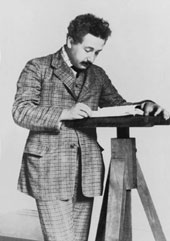
OK. So a young Albert Einstein once worked in a patent office and an older Wallace Stevens worked as an insurance agent. Great. I got it. But... this... THIS... this speech writing for a man who, rolled up almost every speech I wrote and used it as a pointer while he spoke off the cuff?
Was it karma? Destiny? Was it God's wicked sense of humor? Had I taken a wrong turn on the Queens Expressway of Life? Was there something I was supposed to be learning beyond the fact that I could recite Canterbury Tales in the original Middle English?
Like the long gone speechwriter before me and the one before him and the one before him (or her) in a succession of 50 generations going all the way back to the first masters of hieroglyphics being asked to inscribe, on the inner chambers of the pyramid walls, how great the pharaohs were for reducing famines and plagues by 30%, the human drama I now found myself in was a seriously timeless one -- one that went way, way back.
The real question, though, wasn't how I got here. The real question had nothing to do with cause and effect. The real question was this: What story was I going to tell about the events that were taking place in my life? And what choices would I make in response to the story I was telling -- a story that would likely have been constructed very differently by someone else?
Did I need to hunker down and plumb the depths of the experience that was waiting for me in the Queens Borough President's office? Or did I, like the speechwriter before me and the ones before him, simply need to read the ATM on the wall and move on to higher ground?
Excerpted from this book written by yours truly
Posted by Mitch Ditkoff at 04:08 AM | Comments (0)
March 07, 2014Your Money or Your Life

For the life of me, I cannot remember the name of the financial services company that left me an urgent voice mail message asking that I call them back immediately about my availability to lead their annual leadership retreat on a island off the coast of Florida.
All I can recall was how generic sounding their name was -- something like National Investment Services... or Consolidated Financial Brokers.... or The American Banking Alliance -- kind of like the corporate equivalent of John Doe.
Somehow, they had heard of me and, with their big company pow wow coming up, were looking for someone, with a track record, to help them "become more innovative."
Never having heard of them before, I googled their name and, 1.73 seconds later, found myself on their website, slickly designed, I imagined, by someone with a special fondness for iStock photos of earnest looking models impersonating business people -- models who must have just moved to L.A. to pursue acting careers, but found themselves, at 24 or 35, working part-time as waiters and jumping at the chance to pick up some easy money wearing a suit and a smile for a day.

Easy for me to say -- me being the proverbial pot calling the proverbial kettle black with my big ass mortgage, family to feed and young entrepreneur's dream of making it big so I'd actually have enough moolah, one day, to invest with a financial services firm. Not to mention all the time in the world to write my best-selling book.
My first meeting with the client was pleasant enough. They talked. I listened, choosing not to interrupt them every time they made their point with an acronym I probably should have known if I only I hadn't spent my formative years living as a hippie, poet and monk.
OK, so they weren't a solar energy company. So they weren't asking me to help them end AIDS. I got it. This was business. The money business. The big money business -- and I was in it, no matter how much Rilke and Rumi I read on the side. Money. This was about money. Money and the VP of something or other inviting me to meet with him and his team the following week on the 57th floor of a building on Wall Street. There would be a badge waiting for me at the security desk, he explained. All I needed to do was show my ID.
Thrilled? Was I thrilled? Not exactly. But this was a possible gig and I needed the bread, so I went.
The VP and his team on the 57th floor looked nothing like the iStock photos on their company's homepage, though they did have a real nice view of Manhattan and a large mahogany conference table.
Our conversation went well enough. I asked all the right questions. They gave all the right answers. They sprinkled the conversation with football metaphors. I nodded. They gave me their business cards. I gave them mine. But on the way home, I began to feel a creeping sense of dislocation and dread -- like I was auditioning for a movie I wasn't quite sure I wanted to be in -- a movie being produced by a very fat man, sitting poolside, cell phone and martini in hand.

So when they called me back for a third meeting, I was betwixt and between. Do I simply trust my instincts and tell them I'm not their man? Or do I let go of my all-too-obvious self-righteous judgments and focus on the possibility that I might actually be able to help them get to higher ground?
Eternally the optimist, I chose the latter and decided to meet with them a third time -- a meeting, sad to say, which only confirmed the fact that I didn't like them very much and didn't like myself for sitting in a room with them and enabling their collective hallucination of themselves as a service organization when all they really wanted to do was make more money. Lots more money.
More chit chat. More coffee. More "run it up the flagpole" platitudes that littered our conversation like hidden charges on a credit card bill.
This was the moment of truth.
My client-to-be, apparently satisfied with what was about to become his decision to engage my services, cut to the chase and asked me to quote him a fee.
The honorable thing to have done, at the time, would have sounded like "John, I wish you the best of luck at your offsite, but after deep consideration, I don't think I'm the best possible fit for your company's needs."
But since I hadn't yet mastered the art of speaking my truth I took the easy way out and doubled my fees, thinking that they would now be so ridiculously high it would be the client's decision to end the relationship, not mine.
"That sounds about right," the client exclaimed, extending his right hand to seal the deal.
Fast forward six weeks later.
It's 8:30 a.m. and I'm on stage, in the Oakwood Room, on a beautiful island off the coast of Florida. Looking out at the audience, I notice that four of the gathered troops are sleeping, heads on the table. Someone in the front row explains to me that last night had been a "late one" and they'd all stayed up, drinking, until 4:00 a.m.

I tap the mic and begin speaking, trusting that the sound of my amplified voice would be enough to wake the dead.
Two of them snap to attention. The other two don't, still lightly snoring.
I signal the people sitting next to their sleep-deprived peers to poke them, which they do, shooting glances at me as if I am a substitute algebra teacher.
This is, as far I could tell, not a leadership offsite at all, but a college fraternity weekend -- big men on campus with stock options, golf shirts and a very high opinion of themselves. The collective attention span in the room is somewhere between a tse tse fly and a lizard. Nothing I say lands. Nothing. Nada. Zilch. Only one thing is clear -- I am the highly paid warm up act before another night of drinking -- a small typographic box they can check off next quarter to prove they have done "the innovation thing."
I may have missed the moment of truth back at my client's office six weeks ago, but I wasn't going to miss it today.
"Gentlemen and ladies," I announce. "It's obvious that some of you don't want to be here. It seems you'd rather be golfing, napping or checking your email. I have no problem with that. So... we're going to take a 20-minute break. Only return if you really want to be here. Otherwise, you'll just be dead weight, screwing it up for the rest of us. Kapish?"
Twenty minutes pass. Everyone returns. Every single one of them.
And while the rest of the day didn't exactly qualify as one of the great moments in the history of innovative leadership off sites, at least it wasn't a total loss. Some good stuff actually happened. People woke up. People shaped up. People stepped up. And I learned a valuable lesson that would serve me for the rest of my life: Follow my feeling, not the money trail.
This story excerpted from my forthcoming book: WISDOM AT WORK: How Moments of Truth on the Job Reveal the Real Business of Life.
This story also in the Huffington Post
What's the Problem?
How to help these guys change
We all have a story to tell
Idea Champions
Posted by Mitch Ditkoff at 11:28 AM | Comments (0)
March 01, 2014Follow Your Feeling, Not the Money Trail

Sometimes, you just gotta follow your feeling, not the money trail. A new article of ours just published in the Huffington Post.
Posted by Mitch Ditkoff at 12:07 AM | Comments (0)














